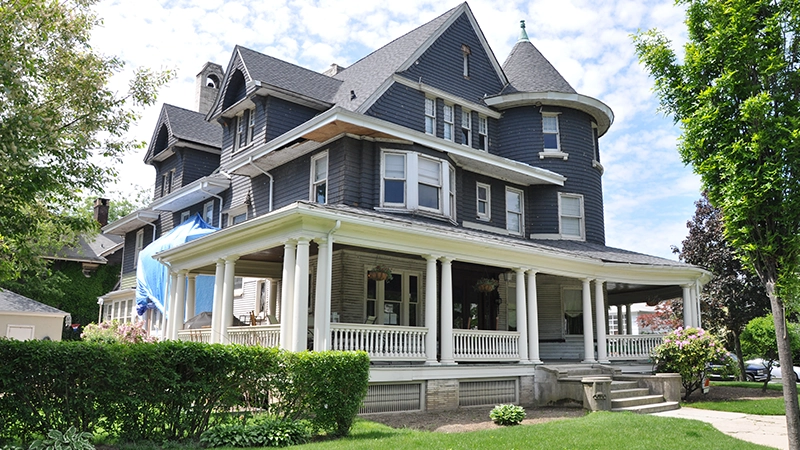“Very knowledgeable, attentive and professional.”
Free Consultation
(718) 520-0085

Are you a homeowner in or near New York City who is behind on mortgage payments? You are likely feeling stressed, possibly even overwhelmed by the prospect of losing your home to foreclosure. Our New York foreclosure defense attorneys are committed to helping people protect their rights and save their home. We provide comprehensive, solutions-driven foreclosure defense representation.
A mortgage loan modification may be the best option for catching up on mortgage payments and saving your home. A loan modification is a mutually agreed upon adjustment of the terms of a mortgage. It could lead to a waiver of penalties and fees, a reduced interest rate, a longer term, and, importantly, a lower monthly payment. Our New York loan modification attorneys are here to help.
A loan modification or mortgage modification is a voluntary agreement between a borrower (typically the homeowner) and a lender to adjust the terms of a mortgage. Loan modifications are negotiated when the borrower is struggling to keep up with payments. Modifications may include changes to the interest rate, duration of the loan, and/or monthly payment amounts.
A successful loan modification can help homeowners avoid foreclosure while making their monthly mortgage payments more affordable. It may stop ongoing foreclosure proceedings and allow a borrower to remain in their home. In addition, this process may prevent severe credit damage that often comes with foreclosure.
A short sale is a home sale that is completed at a price lower than the amount due on the current owner’s mortgage. This is typically negotiated with the mortgage company. The lender may agree to take less than the full amount due on the loan in order to resolve the outstanding balance. While the name may suggest otherwise, short sales usually take longer than traditional sales. Whereas traditional sales often close in around 45 days, short sales often require 120 days.
Filing for bankruptcy to prevent foreclosure is a common option used by struggling homeowners. Under Chapter 7 bankruptcy, an automatic stay provides temporary relief, giving the borrower time to catch up on missed mortgage payments. However, if overdue payments are not made after filing, the stay may be lifted and foreclosure can proceed.
Under Chapter 13 bankruptcy, the borrower creates a structured repayment plan with court approval. Mortgage arrears included in the plan are typically repaid over three to five years, with monthly payments based on the borrower’s income. Missing payments under Chapter 13 may again lift the stay, allowing foreclosure proceedings to resume.
Every homeowner’s situation is unique. At Poltielov Law Firm P.C. we begin by carefully reviewing your mortgage documents, payment history, and communications with your lender. We then evaluate all possible foreclosure defense strategies including loan modification, negotiation with your lender, filing for bankruptcy, or pursuing alternatives like short sales. Our goal is to help you keep your home whenever possible, or otherwise find the most favorable resolution.
If you are at risk of foreclosure in Queens or anywhere in New York City, you do not have to go through it alone. The sooner you act, the more options you may have available to protect your home. Contact Poltielov Law Firm P.C. today to schedule a free, fully confidential consultation with an experienced foreclosure defense attorney.
In New York, lenders must serve a 90-day pre-foreclosure notice before initiating the process. This means foreclosure typically begins only after four months of missed payments. While some banks may allow more time, many act aggressively and move forward as soon as legally possible.
Yes. New York is a judicial foreclosure state, which means lenders must file a lawsuit in court to complete the process. A judge will review the case before a foreclosure judgment can be issued. This allows homeowners legal opportunities to challenge or delay the foreclosure.
Defenses vary depending on the situation. Common strategies include negotiating a loan modification, pursuing refinancing, arranging a short sale, or filing bankruptcy to halt proceedings. Our attorneys evaluate each case individually and work to build a defense that protects your home and your financial future.
Yes. Foreclosure is considered a major negative event on credit reports. It can stay on your credit history for up to seven years and significantly lower your credit score. However, alternatives such as loan modification, repayment plans, or even bankruptcy may provide relief while potentially reducing the long-term damage to your credit.
Bankruptcy is not the right choice for everyone, but for some homeowners, it may be the only realistic way to prevent foreclosure. Chapter 7 provides temporary relief through an automatic stay, while Chapter 13 offers a structured repayment plan. Your eligibility, income, and overall financial picture should be reviewed with an experienced attorney before deciding.
